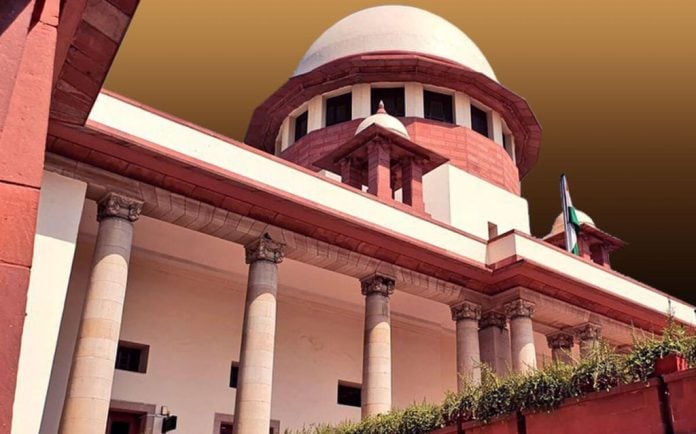The Supreme Court on Friday sought response from the Union government over its decision to block access to BBC’s documentary ‘India: The Modi Question,’ related to the 2002 Gujarat Riots, on online platforms and social media.
The Bench of Justice Sanjiv Khanna and Justice M.M. Sundresh, while refusing to pass any interim orders, issued notice to the Union of India returnable in the month of April.
It further directed filing of a counter affidavit will be filed within three weeks from the date of service of the notice and said that rejoinder, if any, had to be filed within two weeks after submission of the counter affidavit.
The Apex Court then ordered the Central government to produce original records related to the ban on the next date of hearing, which would be in April.
The Bench issued directions on two petitions challenging the ban. The first one was filed jointly by journalist N. Ram, Advocate Prashant Bhushan and AITC MP Mahua Moitra, while the second one was filed by Advocate M.L. Sharma.
Appearing for N. Ram and others, Senior Advocate Chander Uday Singh submitted that the Centre had invoked emergency powers under the Information Technology (IT) Rules to block the documentary.
Justice Khanna asked the Counsel, as to why they did not approach the High Court first for relief. Singh replied that the Supreme Court had itself transferred the petitions pending in the High Court challenging the IT Rules at the behest of the Union government.
The Counsel further pointed out that the High Courts had been restrained by the Apex Court from hearing those matters.
On another query related to the blocking order being issued under the same rules, Singh replied in the affirmative. He also pointed out that the High Courts of Bombay and Madras have already stayed some provisions of the IT Rules.
The petition by Bhushan, Moitra and N Ram submitted that the documentary as well as tweets on the same by Moitra and Bhushan were protected under Article 19(1)(a) of the Constitution.
They argued that the government has not officially placed any document, order or any other information in the public domain to explain the need for exercising emergency powers under Rule 16 of the IT Rules.
The plea further said that criticism of the government or its policies and even the Supreme Court judgments did not tantamount to violating the sovereignty and integrity of the country.
The petition filed by Sharma claimed that the ban on the documentary was arbitrary and unconstitutional. Besides seeking lifting of the ban, this plea further sought investigation into those responsible for failing to contain the riots.
Both the petitions sought quashing of all orders, which censored the documentary, either directly or indirectly.
The petitioners further sought directions to prevent the respondent-authorities from giving effect to orders curtailing freedom of speech and expression without first putting them in the public domain on a centralised database.
On January 20, the Ministry of Information and Broadcasting had issued directions to block the first episode of the BBC Documentary ‘India: The Modi Question’ on YouTube. Social media platform Twitter was also asked to block all tweets containing the links of the video on YouTube.
(Case title: N. Ram and Ors vs Union of India and Ors)


